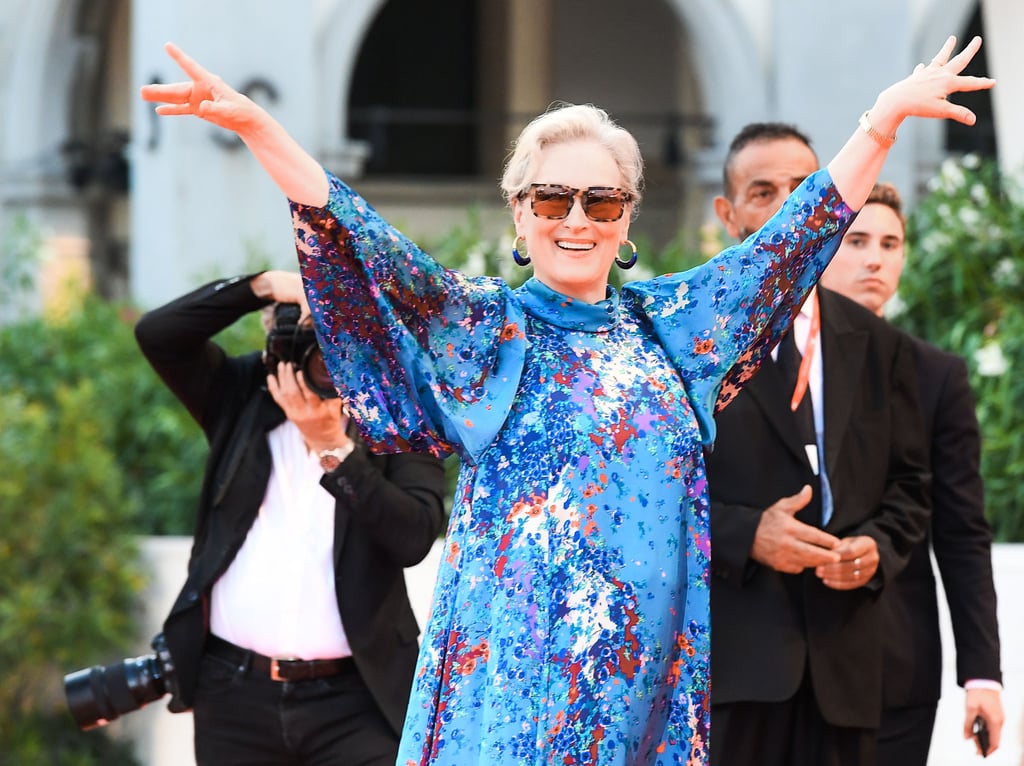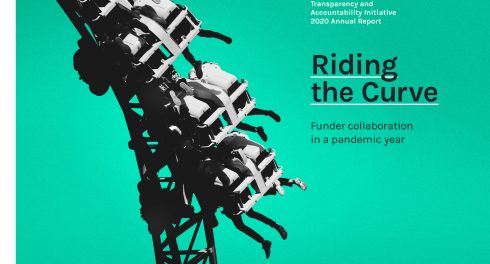Highlights:
- The Streep Effect
- Question of the week?
- Risky Business
- Watching Brief
- TAI Spotlight: Civil Society Engagement in Tax Reform

Meryl Streep at The Laundromat Premiere. Image Source: Getty / VINCENZO PINTO
The Streep Effect
For those of us who work on the minutiae of beneficial ownership and taxes, we often lament the challenge of mobilizing broader public awareness and engagement. One answer? Star power. Kudos to director Stephen Soderbergh who explains how he turned the dodgy schemes revealed by the Panama Papers and their real life consequences into multiplex fare. Of course, it helps to have Meryl Streep, Antonio Banderas, Gary Oldman and the like to bring it to life. Kudos, too, to those at the U.S. Senate who’ve been pushing the ILLICIT CASH Act in well-timed move. (Clearly you get paid extra for making creative legislative acronyms these days).
Maybe not quite the same wattage of star power at the IMF these days, as Bulgarian economist, Kristalina Georgieva – the first person from an emerging economy to lead the agency. She jumped right into the delights of United Nations General Assembly (UNGA) week where issues of debt, taxes and illicit flows (and the challenges of financing the SDGs) were to the fore. Eric Le Compte of Jubilee USA was among those headlining a daunting agenda for delegates ranging from debt relief for extreme weather events to a global super bankruptcy process to corporate transparency.
Illicit financial flows always flare up in attention around UNGA Week and this year was no exception – UNCTAD among those highlighting this huge barrier to meeting the SDGs and U4 putting out a well-timed piece on asset recovery that reminds us of the importance of paying attention not just to the technical but “ the broader political conditions in both requesting and requested states.” Similar messaging can be found in a new review of civil society engagement in tax reform by the Overseas Development Institute and commissioned by TAI. The World Bank has approved a €125m program to North Macedonia to “to improve the efficiency and transparency of public finance” in addition to trying to make the tax system more equitable. Can we fund complementary support to civil society anyone?
Of course, its not just the World Bank talking to more equitable taxes. Abigail Disney, heiress to the Disney empire, has stated she has a plan to fix capitalism, which includes taxing the rich. Tax Justice Israel would probably agree, with their new policy papers on the importance of taxing capital gains. Meanwhile, the European Court of Justice ruled that when Luxembourg offered a tax deal to Fiat, it constituted as illegal state aid. However, the Netherlands’ deal with Starbucks did not. Of course, it’s not just what you raise but how you spend it and colleagues at International Budget Partnership remind us how budget credibility is affecting spending on social priorities.
Question of the week?
What connects Timor-Leste, Uruguay, Ireland, Namibia, Sweden, Ethiopia, Indonesia, Spain and Tunisia?
Answer – they all just committed to promoting equality and inclusion and supporting goals of the Pathfinders Grand Challenge on Inequality and Exclusion.
Reducing opportunities for corruption might help in that regard. On that front, Ghana’s President used his visit to New York to call for an end to poorly designed government contracts (for motivation, see last week’s Essential Listening). Rising debt can also be suspicious and debilitating. The IMF warned Zimbabwe that bond repayments to a firm run by a political ally risk pushing the economy to the brink. The government gave the firm, Sakunda, $366m in government bonds as payments for supplying “Command Agriculture” a state farm subsidy scheme. When some bonds were redeemed, the government paid in Zimbabwe dollars, so increasing the monetary base by a startling 80%.
Transparency International released their corruption barometer for Latin America and the Caribbean last week and with it highlighted the growth of threats against counter-corruption efforts in Brazil and a political crisis in Honduras fueled by corruption leading to lost faith in government and subsequent migration.
Meanwhile, Harvard Professor Archon Fung presents a novel idea of fighting corruption – give average citizens lobbying vouchers to give them a level playing field with the elite. He considers the case of the United States where 94% of interest groups in DC represent the interests of just 20% of American citizens.
Risky business
UNGA Week seems to bring out every corporation to claim allegiance to development causes – not least the investor community. 1700 delegates gathered for the UN Principles for Responsible Investment conversations but as Sagarika Chatterjee called out, their industry continues to underestimate climate-related policy risks. At least some businesses and development organizations took the street in solidarity, while others like Open Democracy took it a step further by embarking on a digital climate strike.
To let the capitalists and world leaders know it isn’t going to be business as usual, Global Witnesses’ Murray Worthy made an example of Equinor, Norway’s state oil company, which claimed in an ad that its gas was “low carbon”. Following a complaint to the UK’s advertising regulator, Equinor was forced to withdraw its claim.
Of course, extractives production will shift but not stop. Good governance of ongoing production still matters. Emmanuel Bria speaks about the tension between coal and renewable energy developments in Indonesia. Ecuador commits to become an EITI implementing country while the Ghanaian government enlists a consortium of partners to overhaul the country’s mining regime.
The Effective States and Inclusive Development program at Manchester University just completed an eight year review of their research – see what their headline findings are here, including that civil society is very active and present in some sectors, like public service delivery provision in India, but absent in others.
What role for leadership in state effectiveness? David Hudson and Claire McLoughlin have written a paper, attempting to develop a basis of thinking for leadership and how it is understood in different contexts. That should extend to generational shifts in leadership. Nathalie Delepalme, Executive Director of the Mo Ibrahim Foundation, says Africa is the continent of the future and we should stop considering the youth bulge as the ‘next generation’ but the ‘now generation’.
As civil society groups face repression worldwide, new research from Christian Aid documents Syrian voices on civil society, urging donors to listen to the locals to grasp the potential for supporting a democratic, open, pluralistic civil society before it disappears. David Sogge says the changing shape of civil society is due to international forces, not just domestic repression.
The phrase ‘and other vulnerable groups’ is a common one in the development industry, but according to a report from Chemonics, its inclusion in program literature does not translate to actual inclusion of those groups in programming. Meanwhile, consider how best to invest in DEI in your development organization – somewhat odd to see this produced by global consulting firms, but take a look.
Ruth Levine and Barbara Chow provides six questions grantees can ask their Foundation Program Officer to improve donor-grantee practice and dynamics. Pair with Co-Impact’s Handbook, recent TAI guidance for grantees and this handy guide from MIT’s GOV/LAB to navigate those tricky moments and have meaningful conversations with your donor/funders.
Watching Brief
Last week, we told you how facial recognition software and AI surveillance is becoming popular among governments all over the world. India is the latest state poised to deploy Chinese style facial recognition software across the country. As concern for states’ use of AI and facial recognition software for oppression increases, Digital Freedom Fund held a ‘Design Jam’ to discuss how the academia, civil society, and the law profession can work together to combat human rights abuses and oppressive overreaches. Similarly, the Open Data Institute performed a survey exploring how people feel about data rights. Spoiler alert: people don’t like being categorized as by machine learning algorithms as it eliminates personal agency.
Not that we want to pass up the positive potential of tech and big data. On that front, the Technology Report 2019 from FunRaise.org examines how charitable organizations worldwide utilize technology, while a new site claims to be the most comprehensive access point for evidence about strengthening 20 government sectors/program areas and achieving the SDGs.
OUR LONG READ
Crucial Donors: How Major Individual Givers Can Best Support Nonprofits
New research by the Center for Effective Philanthropy (CEP) reveals that nonprofits largely seek to develop stronger relationships with major individual donors, desire a greater understanding on the part of major donors about the work of the nonprofit, and are looking for more long term, unrestricted gifts as well as support beyond money.
ESSENTIAL LISTENING
There is Hope: Voices Against Injustice in Pakistan and Kenya
New feature this week on Open Gov Hub Global Podcast Series from our Monitoring, Evaluation, and Learning Fellow, Mavra Zehra and past communications lead, Edith Mecha.
*Don’t forget to check out other stories from the Open Gov Stories Global Podcast Series with Open Gov Hub. It goes behind the scenes to explore why social changemakers do the work they do. Listen to more than 20 stories from people in the TAP field – new ones to come each month. Plus you can record and add your own.
TAI Spotlight: Civil Society Engagement in Tax Reform
Civil Society Engagement in Tax Reform | TAI
Based on a survey in eight countries, the Civil Society Engagement in Tax Reform report explores the role of civil society in domestic tax return and draws out important reflections on how donors can support CSOs more effectively in this space.
The Beginner’s Mind: Open, Curious, and Excited | MacArthur Foundation
MacArthur President John Palfrey shares optimism inspired by the 2019 MacArthur Fellows who pursue creative work, rigorous thinking, and selective disruption with outsized impact.
Helping communities defend their rights| Luminate
Luminate will be investing unrestricted grant of $500,000 in Accountability Counsel. Investment Principal, Andrew Clarke, tells us why it matters.
Lessons from I Am Aware’s Ghana program | Hewlett Foundation
Pat Scheid shares lesson on social accountability from Ghana’s Center for Democratic Development’s I Am Aware program. The full evaluation report and an executive summary can be found here.
A message to the NYC criminal justice community | Ford Foundation
Ford’s president, Darren Walker responds to criticism on his annual message, “In Defense of Nuance”, which referenced the closure of Rikers Island jail. Darren says the Foundation remain committed to ending mass incarceration and will continue to speak up and speak out, even in the face criticism.
Embracing the Arts in an Era of Disruption| Open Society Foundations
With rights and freedoms under attack around the world, Open Society Foundations vows to increase its investments in the arts because “when faced with unjust systems that seem insurmountable, imagination can encourage us not only to aspire to achieve change, but to actively pursue it”.
Calls:
Reagan-Fascell Democracy Fellows Program – October 1
The Rockefeller Foundation-Acumen Student Social Innovation Challenge – October 15
Craig Newmark Cyber Journalism Fellowship – November 1
TAI Student Fellowship – Spring 2020 – November 10
Small Charities Challenge Fund for UK registered NGOs and Charities – November 28
Calendar:
Finding New Opportunities for Transparency, Accountability, and Civic Participation to Improve Health – September 25, 2019 (Cambridge, Massachusetts)
IDEAS 2019 Global Assembly and Third International Conference on Evaluating Environment and Development – September 30 – October 4, 2019 (Prague, Czech Republic)
2019 Social Practice of Human Rights Conference – October 1-4, 2019 (Dayton, Ohio)
Asset Recovery of Grand Corruption: Lessons from Romania – October 3, 2019 4:00 PM – 5:00 PM ET (Washington, DC)
Liberating Structures Festival – October 7 – 11, 2019 (The Hague, Netherlands)
Global Symposium (COPGS) on Citizenship, Governance, and Accountability in Health – October 15-18, 2019 (New Delhi, India)
What Works Global Summit 2019: Building Evidence – October 16 – 18, 2019 (Mexico City, Mexico)
7th SAMEA Conference: Shaping M&E for a sustainable future – October 21 – 25, 2019 (Gauteng, South Africa)
Global Perspectives 2019 – October 29 – November 1, 2019 (Addis Ababa, Ethiopia)
Global Partnership for Social Accountability – Global Partners Forum 2019 – November 19-21, 2019 (Washington, DC)
ODI Summit 2019 – November 12 – 2019 (London, United Kingdom)
The Story Conference – November 27 – 29, 2019 (Melbourne, Australia)
The Impacts of Civic Tech Conference (TICTeC) – March 24 – 25, 2020 (Reykjavik, Iceland)
Transparency International: 19th International Anti-Corruption Conference – June 2 – 5, 2020 (Seoul, South Korea)
Women and Girls Africa Summit – June 9-12, 2020 (Durban, South Africa)


